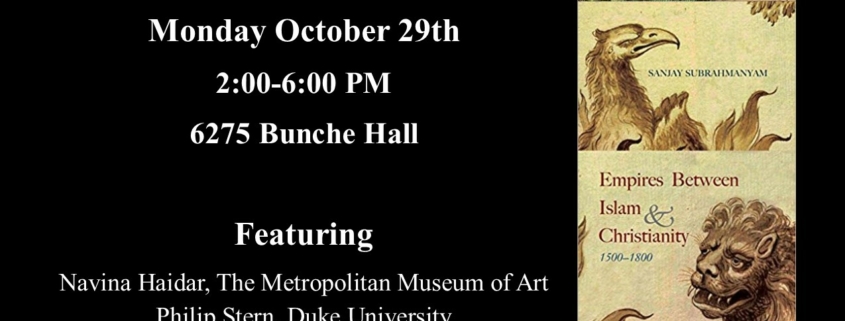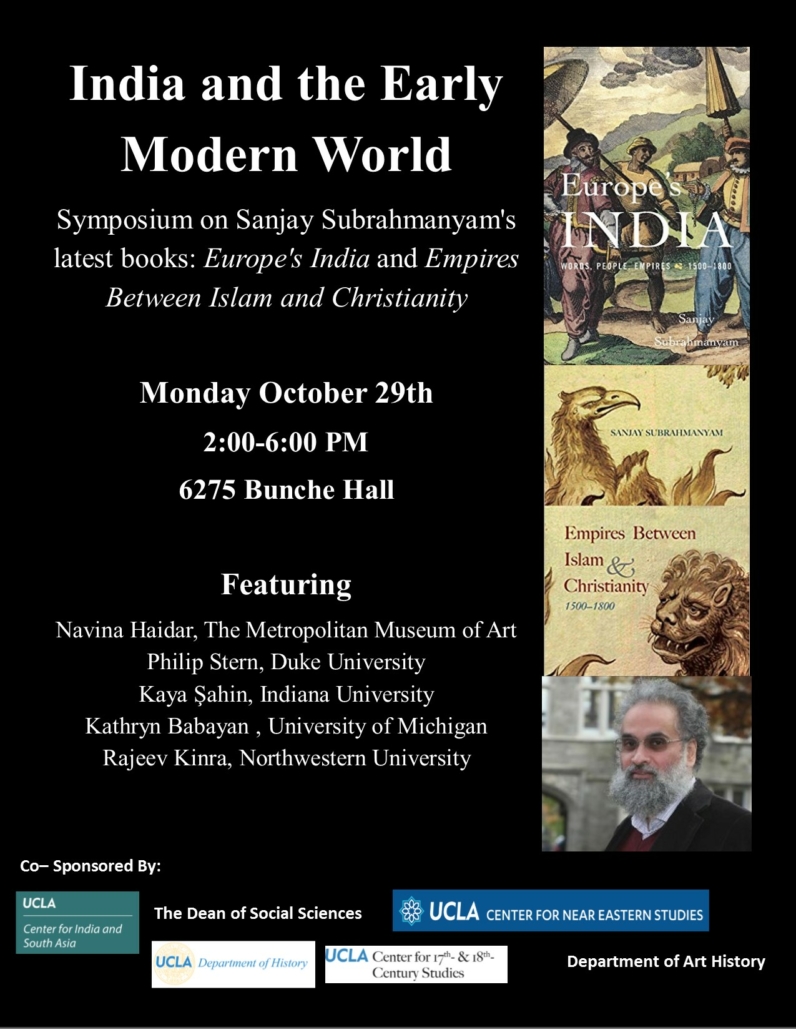

Panel 1
2:00-2:05 Introduction
2:05-2:25 Navina Haidar
2:25-2:45 Philip Stern
2:45-3:05 Kaya Sahin
3:05-3:30 Coffee break
Panel 2
3:30-3:50 Kathryn Babayan
3:50-4:10 Rajeev Kinra
4:10-4:30 Sanjay Subrahmanyam
4:30-5:15 Q&A
5:15-6:00 Reception
Kathryn Babayan– University of Michigan- (PhD Princeton University, 1993) studies the medieval and early-modern Persianate world and focuses on the cultural, social and political histories of Iran, Iraq, Anatolia, and parts of Central Asia. Her scholarly career began with a study of religious and political authority in Safavi Iran (1501-1722), and then advanced to a close examination of the ways in which textures of time and being influenced the pre-modern writing of Persianate history and the ritualistic performances of Persianate “memory.”
Navina Najat Haidar has been a curator in the Met’s department of Islamic art since 1999. She helped lead the planning of the Museum’s Galleries for the Art of the Arab Lands, Turkey, Iran, Central Asia, and Later South Asia, which have welcomed more than 1.5 million visitors since they opened in November 2011. Haidar is co-author of Masterpieces from the Department of Islamic Art in The Metropolitan Museum of Art and Sultans of the South: Arts of India’s Deccan Courts, 1323–1687 (both 2011). She is currently working on an exhibition about the art of India’s Deccan sultans.
Rajeev Kinra– Northwestern University- (Ph.D., University of Chicago, 2008) is a cultural historian of early modern South Asia, with a special emphasis on the literary, intellectual, religious, and political cultures of the Mughal and early British Empires in India (16th-19th centuries). His research draws on several linguistic traditions (especially Persian, but also Hindi-Urdu and Sanskrit), to examine diverse modes of civility, tolerance, cosmopolitanism, and cultural modernity across the Indo-Persian and Indian Ocean worlds.
Kaya Sahin– Indiana University Bloomington- (Ph.D. University of Chicago, 2007) is a historian of the early modern Ottoman Empire, with a particular interest in history writing, governance, religious/confessional identity, and the construction of discourses/fictions around the question of what it meant to be an Ottoman.
Philip Stern– Duke University- (Ph.D. Columbia University, 2004) focuses on the history of Britain and the British Empire, particularly in the early modern period (loosely defined). His first book, The Company-State, is a political and intellectual history of the English East India Company in the seventeenth and eighteenth centuries. He is currently working on or planning projects related to the history of the corporation in the British Empire, eighteenth-century British overseas exploration and cartography, the historiography of British India, early modern economic thought, the history of companies and colonization, and digital and data visualization approaches to the problem of colonial sovereignty.
Sponsor(s): Center for India and South Asia, Center for Near Eastern Studies, Department of History, Dean of Social Sciences


